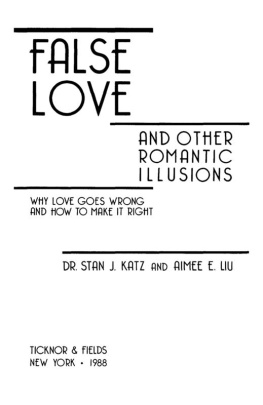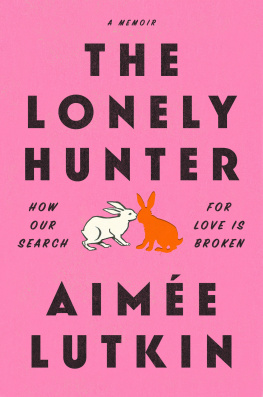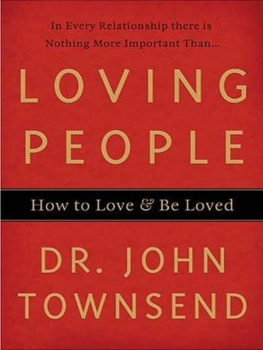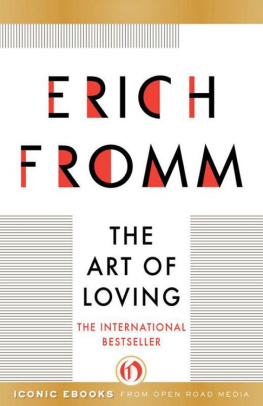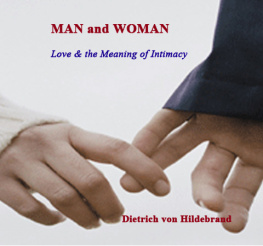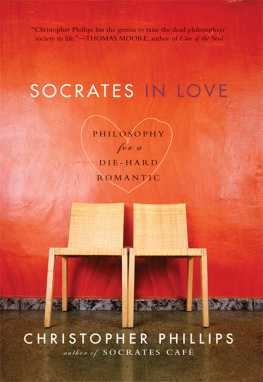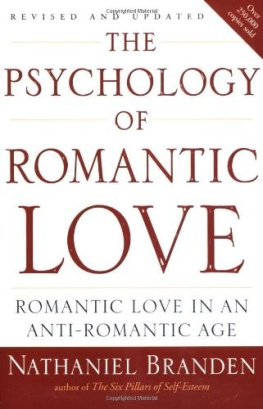TICKNOR & FIELDS
NEW YORK 1988
When you were a child, I crept into your dreams. Dazzlingly attractive, glamorous, and mysterious, I promised to make you happy forever after.
When you grew up, I kept beckoning. I would sweep you off your feet, make your pulse race and your spirits soar. I thrilled you with excitement, romance, and passion. I vowed the spell would never fade and then I broke your heart.
I AM FALSE LOVE.
For
Jennifer, Jamie, and Jordan
and
Graham and Daniel
May your lives be filled with
joy, happiness, and love.
Copyright 1988 by Dr. Stan J. Katz and Aimee E. Liu
All rights reserved.
For information about permission to reproduce selections
from this book, write to Permissions, Ticknor & Fields,
52 Vanderbilt Avenue, New York, New York 10017.
Library of Congress Cataloging-in-Publication Data
Katz, Stan J.
False love and other romantic illusions : why love goes
wrong, and how to make it right / Stan J. Katz and
Aimee E. Liu.
p. cm.
ISBN 0-89919-538-5
1. Love. 2. Interpersonal relations. I. Liu,
Aimee E. II. Title.
HQ 801. K 36 1988
306.7dc19 88-9407
CIP
Printed in the United States of America
Q 10 9 8 7 6 5 4 3 2 1
Contents
Introduction
I. T HE S EARCH
1. Looking for Love
2. Falling in Lust
3. The Image Trap
4. Romantic Deceptions
5. The Parent Trap
II. T HE S OURCES OF I LLUSION
6. Conditioned Responses
7. Conflicting Images
8. Rehearsal Games
9. Transitions in Love
III. R EALITY AND R OMANCE
10. Choosing Love
11. Living Love
12. Doubting Love
IV. B REAKING THE F ALSE L OVE S YNDROME
13. Finding a Partner in Love: A Ten-Point Plan
14. Making Love Work: A Ten-Point Plan
Acknowledgments
We owe a debt of gratitude to all the people who lent us their support during the months of planning, writing, and editing required to produce this book. In particular, we'd like to thank Richard Pine for the introduction that brought us together and the encouragement that kept us moving forward; Katrina Kenison for her unflagging enthusiasm, commitment, and editorial comments; the patients whose lives provided the cases for this book; and Deborah and Martin, who are our own true loves.
Introduction
What comes to mind when you hear the words true love? Ingrid Bergman and Humphrey Bogart? White knights and maidens in distress? Candlelit dinners? Electric passion? Obsessive desire? These are all part of the picture we're taught to call true love. Unfortunately, this image is as misleading as the myths and fairy tales on which it is based. It is a composite of illusions that guide us not toward the truly loving, committed relationships we want but to their oppositefalse love.
False love is the affair that dries up inexplicably three weeks after you decide it's the greatest romance of the century. It's the marriage that cruises effortlessly for ten years until you discover that your husband has a lover half your age. For him, of course, false love is also the relationship for which he leaves you. False love may be your first, your latest, or every romance you've ever known. Often exciting, sometimes glamorous, it is always seductive, because it's based on some of your favorite illusions. Unfortunately, it's so seductive that it can become addictive, sabotaging your opportunities for true love.
Unlike false love, the real thing involves mature choice as well as emotion. It recognizes that feelings as well as people develop and change over time, and it accommodates changes by preserving an intimacy that runs deeper than lust. True love is mutual, honest, and highly complex. It may have all the bells and whistles of a storybook courtship, but it may also appear rather mundane. People truly in love have enough faith in each other that they need neither elaborate gifts nor public swooning. It doesn't matter what others think of their relationship. What does matter is trust, respect, sharing, and commitment. True love is a union of two individuals, not a show. It is a choice, not a feeling or a magical state of existence. It makes life more satisfying and richer for both lovers, but it is not a panacea for all their problems. Unfortunately, true love does not conquer all.
Some say the problem with romantic relationships is that dessert comes first and makes the rest of the meal unappetizing by comparison. No one can keep the honeymoon going forever. In fact, the key difference between true love and false is that false love often ends with the honeymoon. If the relationship lingers longer, it's usually because the lovers are trying vainly to recapture their initial passion. True love, on the other hand, presses forward without mourning the past. The spark of excitement comes and goes, the trust deepens, and the stakes get higher. Living happily ever after requires a lot more hard work than magic.
It's small wonder, then, that false love is so distracting. It glitters with romantic trappings. It makes delicious promises that true love never does. It feels good and impresses the people around you. Perhaps most compelling of all, it reinforces the fractured images of love you've been fed from childhood. Beginning with myths of sleeping princesses and visions of starry-eyed TV newlyweds, you absorbed one set of ideals for romance. Later, secret peeks at porno magazines, adult movies, and "dirty" books may have paved the way for quite a separate notion of sex. Meanwhile, your parents and other real-life couples presented altogether different and more bewildering images of marital loveimages that usually are completely unacceptable to a young person transfixed by the lure of a "perfect" love. If you're like most people, you've spent a good share of your life trying to weave these contradictory impressions into something that looks and feels good, something you think might actually be true love. Sometimes your feelings of love might be based on good sex, sometimes on the infatuation that comes with "falling in love," and sometimes on beauty, power, wealth, social status, or security. Many of these romantic illusions are reflections of the love lies you were taught as a child.
What do you look for in love? Would you agree that true love means:
- Finding the one person who is right for you
- Being intensely attracted to your partner
- Feeling excited whenever you're with your partner
- Rarely fighting
- Rarely wanting to be apart from your partner
- Having great sex
- Never being sexually attracted to anyone else
- Enjoying constant romance
- Never needing anyone but your partner in your life
- Complete fulfillment
If this describes the relationship you've been seeking, you may be caught in the false love syndrome, for these criteria describe not lasting love, but illusionillusion so powerful that it becomes difficult even to imagine any more realistic kind of love. In your quest for this impossible devotion, you probably have created a trail of unsatisfactory affairs, each of which superficially meets your expectations for a while and then crumbles, leaving you mystified as to what went awry and why you keep choosing partners who turn out to be "wrong" for you. If you are in a promising relationship right now but are afraid it will end as the others did, the unhappy truth is that your fears probably will be borne out unless you adjust your expectations and begin moving toward a more realistic and enduring love.
As unromantic as it may seem, true love revolves around shared goals and commitment more than around passion. This is not to say that passion is absent in genuine love, but it inevitably fades in and out. When it wanes, lovers make the active choice to continue giving each other affection, encouragement, support, and attention. In genuine love there's a balance between mutual supportiveness and independence. Change and personal growth challenge the relationship instead of threatening it. Lack of change is viewed as a warning sign that the relationship is too tight. Because both partners are committed to loving each other
Next page
